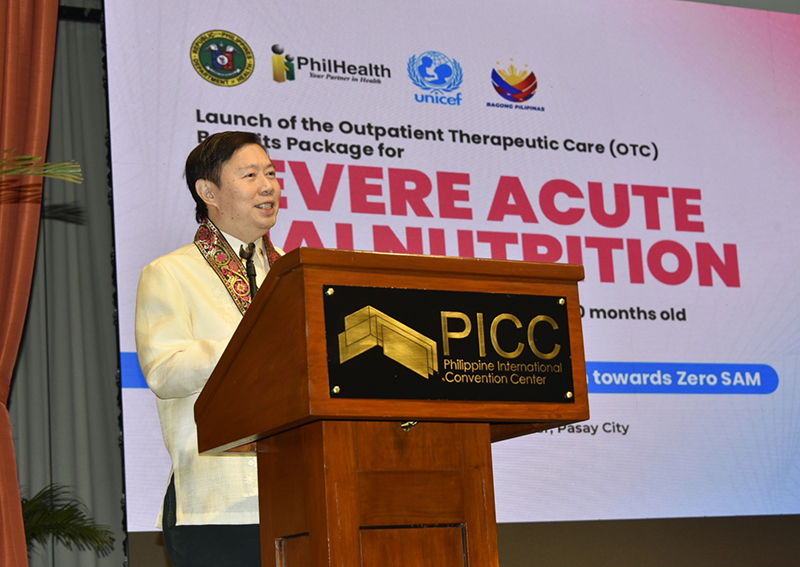MANILA, 1 October 2024 – The Philippine Health Insurance Corporation (PhilHealth), with
support from the United Nations Children’s Fund or UNICEF, has launched the first-ever Severe Acute Malnutrition Outpatient Therapeutic Care Benefit Package in the Philippines and globally. This groundbreaking initiative puts lifesaving treatment within reach of the country’s most vulnerable children. For the first time, the country’s national health insurance system includes comprehensive support for children suffering from severe wasting and other life threatening forms of acute malnutrition.
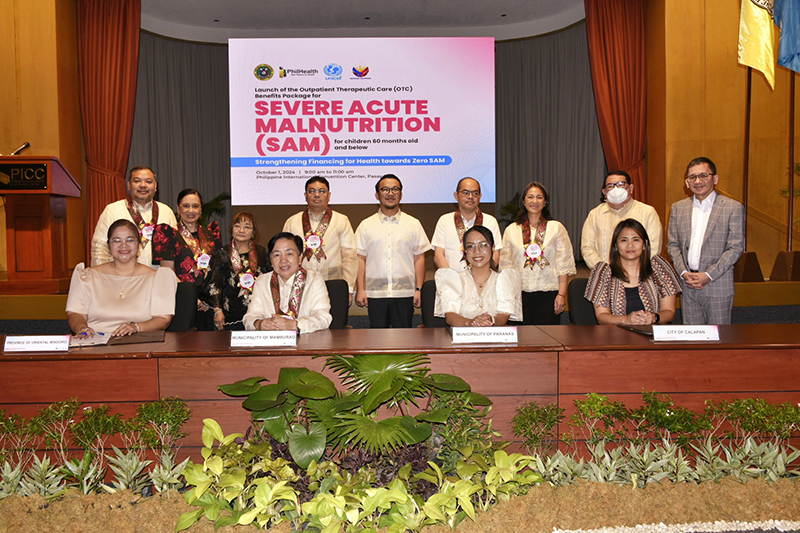
A critical response to malnutrition in the Philippines
Severe acute malnutrition (SAM) is one of the most critical global health concerns affecting 14.3 million children worldwide, yet only a small percentage receive the necessary treatment. In the Philippines, where one in three children faces the triple burden of
malnutrition—undernutrition (stunting and wasting), micronutrient deficiencies, and
overnutrition (overweight and obesity)—nearly 600,000 children suffer from wasting. In
regions like Bangsamoro Autonomous Region in Muslim Mindanao, the wasting rate reaches
10 per cent, double the national average.
SAM is the most dangerous form of undernutrition and can leave children extremely thin,
weak, and unable to fight off infections. Without early identification and immediate
intervention, SAM can quickly lead to death, or even if the child survives, it can lead to stunting later on. Children with SAM have very low weight-for-height, a very low mid-upper arm circumference, or suffer from nutritional oedema. Families and caregivers whose children have SAM should visit their local health centers to access this free benefit package.
The SAM benefit package is available in health centers and primary care facilities across the
country to ensure that lifesaving treatment and care reach those in most need.
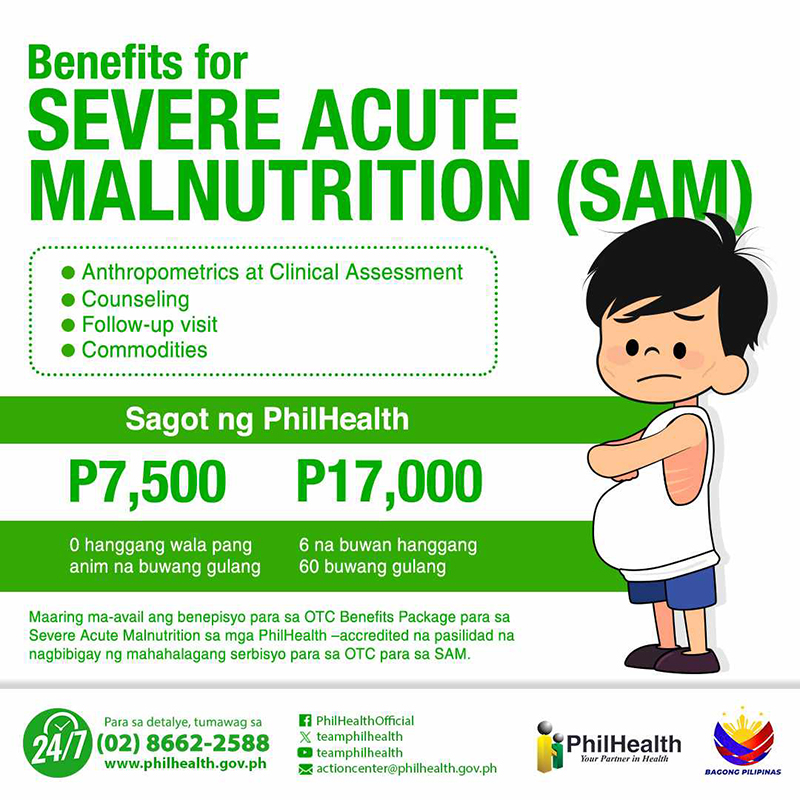
What the benefit package means for children and families
Through the benefit package, families with children suffering from SAM will receive treatment services worth ₱7,500 for children 0-6 months old and ₱17,000 for children 6-60 months old. This financial support helps relieve families from the burden of added treatment costs. The treatment package provides medical care and ready-to-use therapeutic foods, which help restore weight and treat the underlying infections affecting children with severe acute malnutrition. Families are also supported with ongoing counseling from health professionals, who guide them in proper infant and young child feeding and hygiene practices to prevent the reoccurrence of malnutrition. Regular follow-ups through home visits help monitor each child’s progress, especially those who are not responding well to treatment or struggling to thrive. Moreover, referrals to inpatient care are available for children with medical complications and requiring more specialized care.
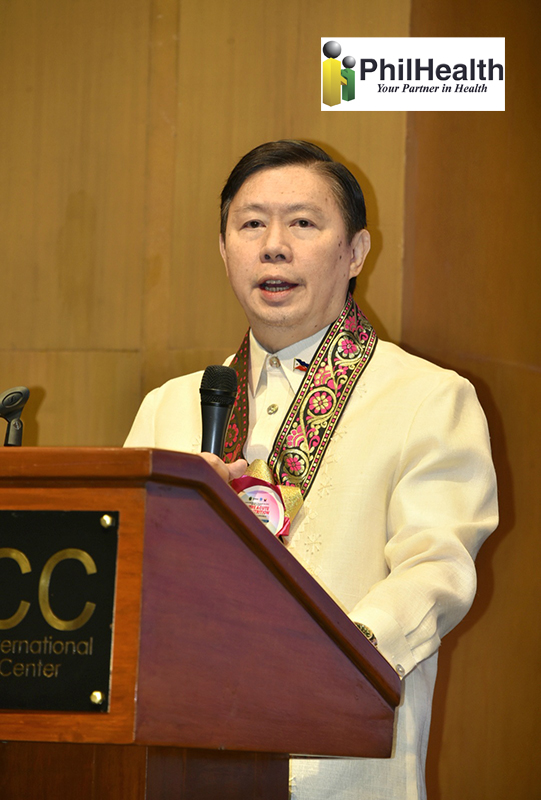
“These packages are PhilHealth’s support to the government’s effort to fight malnutrition in the country. With these, we may help reduce the developmental and medical impacts of malnutrition to the children and their families that will lead to a healthier Philippines,” said PhilHealth President and CEO Emmanuel R. Ledesma Jr.
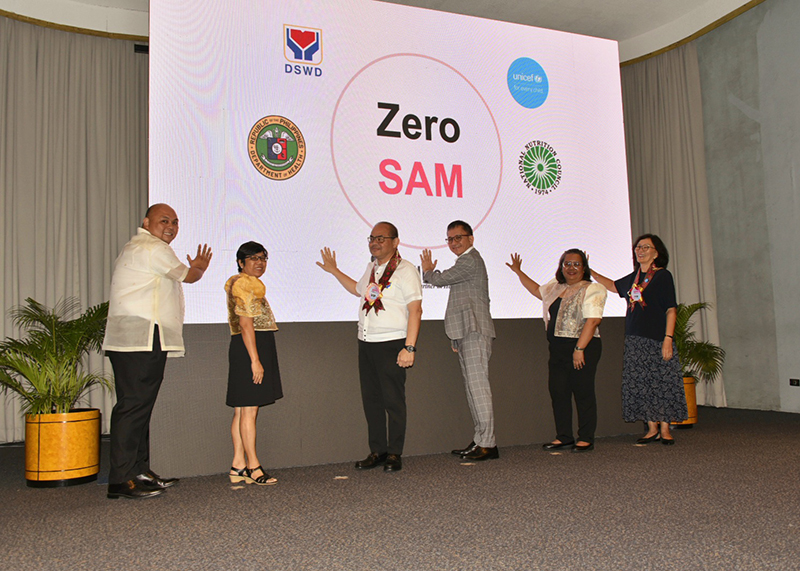
Working together for every child
PhilHealth and UNICEF encourage health providers and parents to take full advantage of this package. As the first line of defense in the fight against child malnutrition, primary care health workers have the power to save lives by ensuring that children in their care are identified early and receive the appropriate treatment they need for SAM.
“Every child, whoever they are and wherever they live, has the right to a healthy start in life, and no family should be held back by financial barriers when it comes to life saving treatment to overcome malnutrition,” said Oyunsaikhan Dendevnorov, UNICEF Representative to the Philippines. “Through a national health insurance, we can make sure every child is identified early and has free access to the care they need. We are giving them a real chance at a healthy and productive future.”
For more information, visit this page or view resources on managing severe malnutrition.
Families may also contact their local health center or call PhilHealth’s hotline at (02) 8662-2588.


